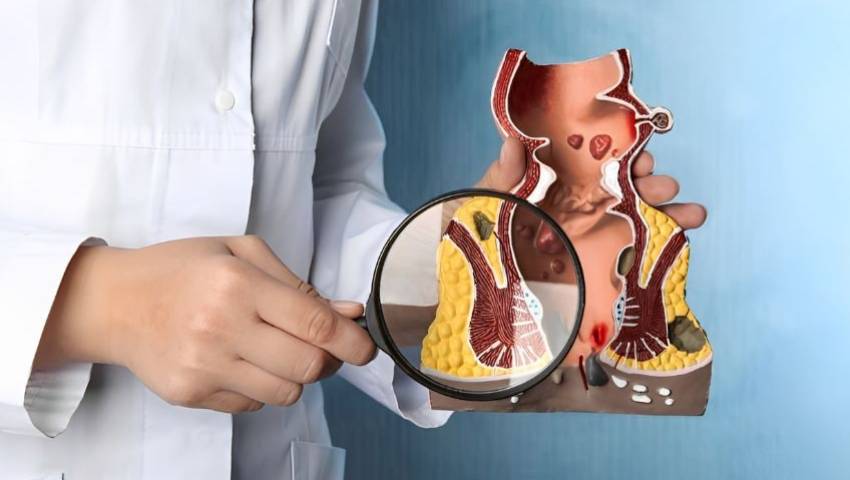
- 15/02/2024
- Dr. Samrat Jankar
- 0 Comments
- Blog
Tips for Preventing Fistula Recurrence After Surgery
Fistula recurrence after surgery can be a challenging issue for patients and fistula surgeons alike. However, with proper care and attention, recurrence rates can be significantly reduced. In this blog post, we’ll explore some expert tips from Dr. Samrat Jankar, a renowned fistula surgeon in Pune, on how to prevent fistula recurrence after surgery.
Understanding Fistula Recurrence:
Abnormal connections between two organs or between an organ and the skin are known as fistulas. Even with effective surgical care, recurrence is always possible for a variety of causes, including poor wound healing, continuous infection, or underlying medical issues.
Tips for Preventing Fistula Recurrence:
- Comprehensive Pre-operative Evaluation: It’s necessary to have a comprehensive assessment of your general health before surgery. Taking care of underlying medical conditions like Crohn’s disease or diabetes can significantly reduce the chance of recurrence.
- Choose a Skilled Fistula Surgeon: It is crucial to choose a skilled fistula surgeon with expertise in treating fistulas, such as Dr. Samrat Jankar. A good surgeon can reduce the chance of recurrence by using the proper surgical technique.
- Follow Postoperative Care Instructions: Samrat Jankar emphasizes the significance of following postoperative care instructions diligently. This includes taking prescribed medications on time, keeping the surgical site dry and clean, and showing up for follow-up appointments on time. Taking good care of wounds is vital to reducing the incidence of recurrence of fistula by preventing infections and promoting recovery.
- Maintain Good Hygiene Practices: Maintaining good hygiene practices is crucial for preventing infection and promoting healing after fistula surgery. Dr. Jankar recommends patients gently clean the area around the surgical site with mild soap and water regularly. Avoiding harsh cleaners or abrasive materials that can irritate the skin is also crucial. Additionally, practicing proper hand hygiene can help lower the risk of introducing harmful bacteria to the surgical site.
- Adopt a Healthy Lifestyle Habits: A healthy lifestyle can play a significant role in preventing fistula recurrence after surgery. Dr. Jankar advises patients to maintain a balanced diet rich in fruits, vegetables, and lean proteins to support overall health and immune function. Avoiding smoking and excessive alcohol consumption is also crucial, as these habits can impair wound healing and improve the risk of complications.
- Stay Active and Avoid Prolonged Sitting: Prolonged sitting or passive behavior can increase pressure on the surgical site and hinder healing. Dr. Jankar recommends patients stay active and engage in light physical activity, such as walking or gentle stretching, to promote blood flow and tissue regeneration. Additionally, using softened seats or pillows to relieve pressure on the surgical area can help prevent pain and complications.
- Stay hydrated: Getting enough water into your body promotes healthy healing and helps you stay hydrated. Avoid excessive consumption of caffeinated or alcoholic beverages, as they can contribute to dehydration and potentially irritate the surgical site.
- Avoid straining during bowel movements: Straining during bowel movements can put pressure on the surgical site and increase the risk of recurrence. Eating a high-fiber diet, staying physically active, and using stool softeners or laxatives as recommended by Dr. Jankar, can help prevent constipation and decrease the need for straining.
- Observe Early Signs of Recurrence: Vigilance is key in detecting any symptoms of fistula recurrence early on. Be mindful of signs such as persistent pain, discharge, or swelling in the surgical area, and promptly report them to your healthcare provider.
- Regular Follow-up: Schedule regular follow-up visits with the best anorectal fistula specialist in Pune to monitor your progress and address any concerns promptly. Early intervention can prevent complications and mitigate the risk of recurrence.
Conclusion:
Preventing fistula recurrence after surgery requires a comprehensive approach that addresses wound care, hygiene practices, lifestyle aspects, and the management of underlying health ailments. Patients can reduce the chance of recurrence and have effective results from fistula surgery by adhering to expert guidance from Dr. Samrat Jankar.
Remember, early detection of any symptoms of recurrence and prompt medical attention are crucial for timely intervention and optimal recovery.
